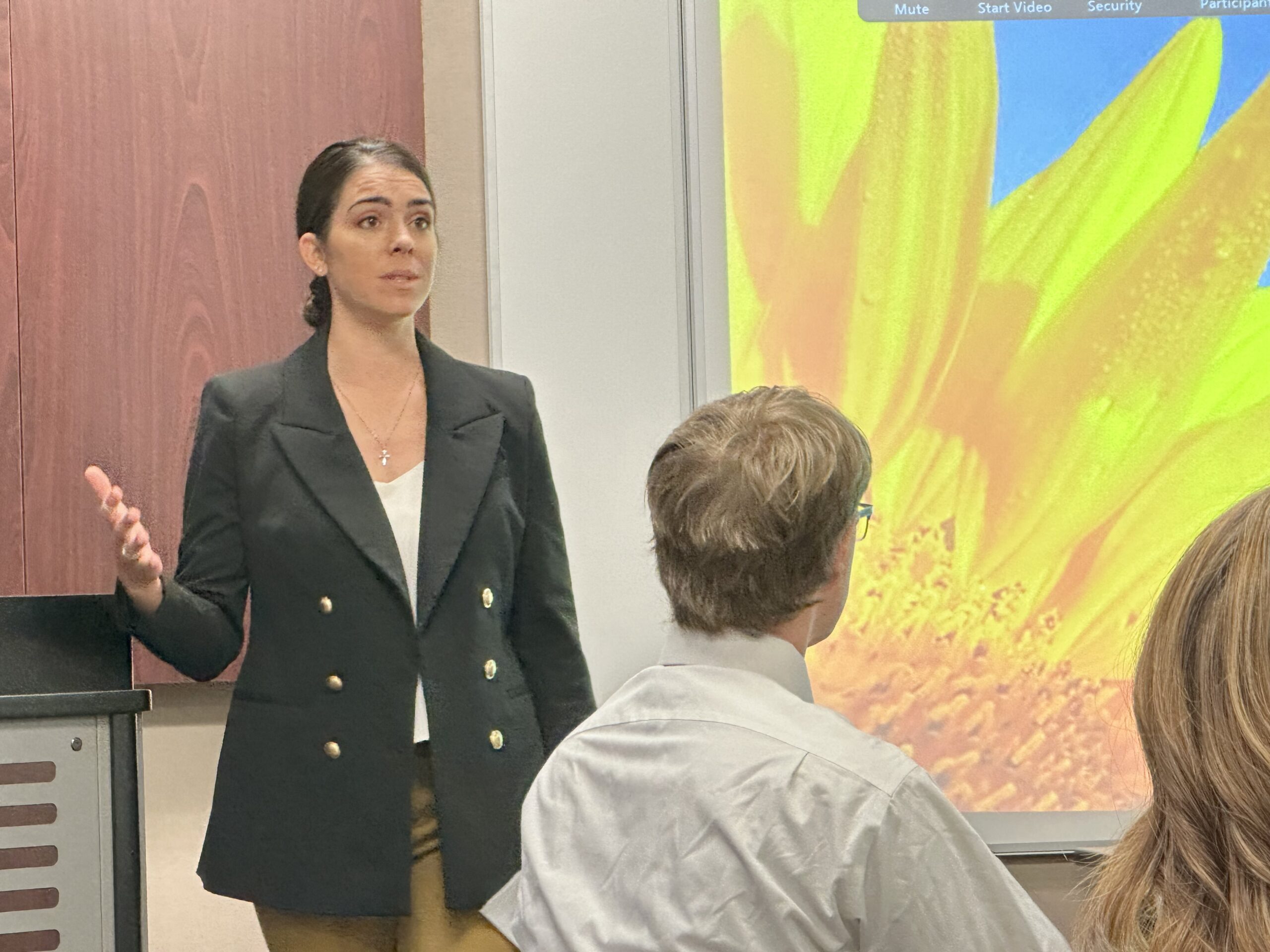
DODGE CITY — A leader of a governor’s panel on rural and frontier mental health says there is still work needed to improve access to services in rural Kansas.
Audra Goldsmith gave a presentation during a legislative luncheon Tuesday in Dodge City that was organized to connect directly with mental health care professionals, service providers, and lawmakers representing western Kansas about the subcommittee’s goals for improving rural services. Sen. John Doll, R-Garden City, and Rep. Jim Minnix, R-Scott City, attended the event.
Goldsmith is co-chairwoman of the Rural and Frontier Subcommittee, which is part of Gov. Laura Kelly’s Behavioral Health Services Planning Council.
Goldsmith said she and other subcommittee members recognize the gaps in mental health care services in more sparsely populated regions across the state. Of particular focus is western Kansas, beginning around the Hays area and spanning to the Colorado border, where Goldsmith said there is a lack of mental health care professionals as well as localized services.
Brian Rixon, with the Southwest Guidance Center in Liberal, told Goldsmith there are no adult mental health inpatient services available west of Wichita, meaning patients must travel to either Wichita or Kansas City for some mental health services. Additionally, few medical transportation providers are willing to drive patients more than 100 miles.
Sherry White, executive director of High Point Advocacy and Resource Center in Colby, told the luncheon group of about 20 people that, as of March, her staff had provided treatment services to 10,000 patients since the center opened two and a half years ago. She said that figure doesn’t include education and outreach programming the center provides to schools and community groups.
“When we first opened it was crazy, because we’d been without a center for over five years in northwest Kansas,” White said. “The next closest center to where we’re at is in Hays, which is over 100 miles away from Colby.”
High Point Advocacy and Resource Center covers the nine counties in the northwest corner of the state, including the communities of Atwood, Goodland, Oberlin, Sharon Springs and St. Francis. White said she is seeing the shortage of mental health care workers firsthand, but she feels fortunate to have an experienced staff.
“The people that work for me all have lived life experience,” White said. “That’s one of my requirements … because how are we going to lower the stigma in our part of the state if we can’t do it within ourselves? So that’s the first qualifying criteria.”
White said some of the negative stigmas surrounding mental health issues, such as depression and anxiety, are “very well and alive” among some regional residents, while others are happy to have mental health care services closer to home.
“When new businesses open up in rural America, it’s exciting,” White said. “So when they can see that we’re having a positive impact in our communities, then they’re glad we’re here.”
White said her organization always needs additional funding sources to continue providing services for people regardless of whether they can pay. In total, she’s billed her patients less than $5,000 since the center opened. The figure would be higher if the state were to expand eligibility for Medicaid services.
At the beginning of the luncheon, Kyle Kessler and Michelle Ponce, of the Association of Community Mental Health Centers of Kansas, spoke about their goals for the 2024 legislative session. Kessler said Medicaid expansion would provide coverage for individuals who otherwise wouldn’t be able to access local treatment for their mental health needs.
In the 2023 Kansas Speaks survey produced by Fort Hays State University, almost 70% of Kansans supported ending the Legislature’s roadblock to Medicaid expansion. The survey was conducted from Sept. 20 to Oct. 10 among 485 Kansas adults.
Republican leaders of the House and Senate have stalled Medicaid expansion since Gov. Sam Brownback vetoed legislation in 2017. Kelly, a Democrat, said she will recommend expansion again to the 2024 Legislature.
